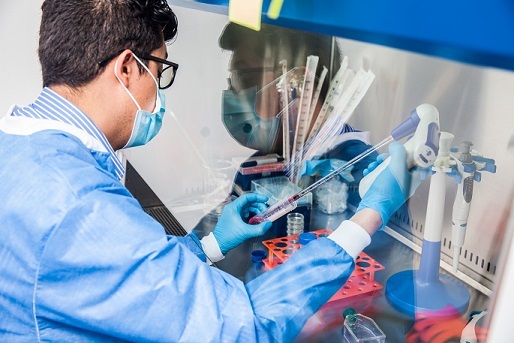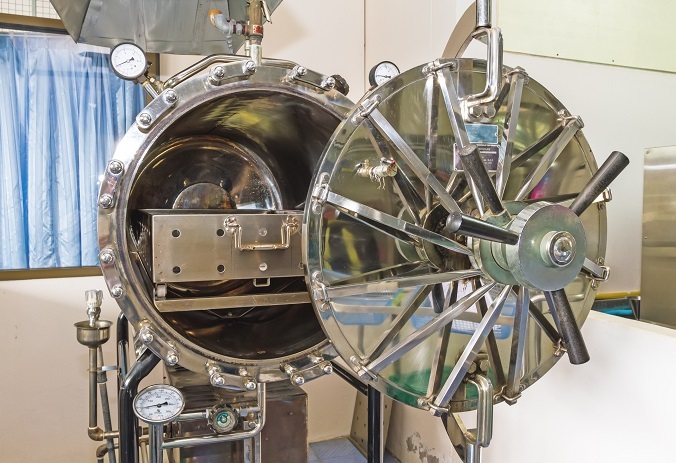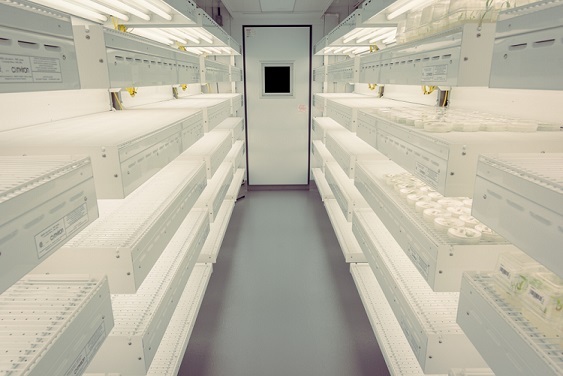
 Data Structure
Data Structure Networking
Networking RDBMS
RDBMS Operating System
Operating System Java
Java MS Excel
MS Excel iOS
iOS HTML
HTML CSS
CSS Android
Android Python
Python C Programming
C Programming C++
C++ C#
C# MongoDB
MongoDB MySQL
MySQL Javascript
Javascript PHP
PHP
- Selected Reading
- UPSC IAS Exams Notes
- Developer's Best Practices
- Questions and Answers
- Effective Resume Writing
- HR Interview Questions
- Computer Glossary
- Who is Who
Plant Tissue Culture Laboratory? What Are the Lab Requirements for Plant Tissue Culture?
Introduction
Plant tissue culture is a valuable tool for plant propagation, conservation, and genetic improvement. It involves the cultivation of plant cells, tissues, and organs in vitro under sterile conditions.
The technique was first developed in the 1950s and has since then revolutionized the field of plant biology. The ability to manipulate plants at the cellular level has paved the way for genetic engineering, plant breeding, and the production of high-value plant-based products.
Plant tissue culture laboratories are specialized facilities designed to provide a controlled environment for the growth of plant tissue cultures.
The content below lists the lab requirements for plant tissue culture and the equipment needed to set up a plant tissue culture laboratory.
Plant Tissue Culture Lab Requirements
The success of plant tissue culture experiments depends largely on the quality of the lab environment. The following are the essential requirements for a plant tissue culture laboratory:
Location
The location of the plant tissue culture laboratory is critical. The laboratory should be located in an area with minimal traffic, dust, and pollutants. The laboratory should be situated away from sources of electromagnetic interference and vibrations that could affect the growth of plant tissue cultures.
Size and Design
The size of the plant tissue culture laboratory should be proportional to the volume of tissue cultures produced. The laboratory should be designed to ensure efficient workflow and minimal contamination. The laboratory should have separate rooms for different activities such as preparation, sterilization, and culture growth. The laboratory should have proper ventilation, lighting, and temperature control.
Sterilization
Sterilization is a critical requirement for plant tissue culture laboratories. The laboratory should be equipped with an autoclave for the sterilization of culture media, equipment, and supplies. The laboratory should have a laminar flow hood or a biosafety cabinet for the handling of plant tissue cultures.
Culture Media
Plant tissue culture requires specific culture media to support the growth and development of plant tissues. The laboratory should be equipped with a variety of culture media, including basal media, vitamins, and plant growth regulators.
Equipment
The following are the essential equipment required for a plant tissue culture laboratory:
Laminar Flow Hood/Biosafety Cabinet
A laminar flow hood or biosafety cabinet is essential for the sterile handling of plant tissue cultures. The hood or cabinet provides a sterile work area by filtering the air and preventing the entry of contaminants.

Microscopes
Microscopes are essential for the examination of plant tissue cultures. The laboratory should have both stereo and compound microscopes for the examination of cultures at different magnifications.
Autoclave
An autoclave is essential for the sterilization of culture media, equipment, and supplies. The laboratory should have a large-capacity autoclave to meet the demand for sterilization.

Incubators
Incubators are used to maintain the temperature and humidity required for the growth of plant tissue cultures. The laboratory should have several incubators with different temperature and humidity settings to accommodate different plant species and tissue types
Water Purification System
Water is an essential component of culture media and should be of high quality. The laboratory should have a water purification system to ensure that the water used for culture media preparation is free from contaminants.
Plant Growth Chambers
Plant growth chambers are used to provide a controlled environment for the growth of plant tissue cultures. The laboratory should have several growth chambers with different temperature, light, and humidity settings to accommodate different plant species and tissue types.

Growth Chamber Isle
pH Meter
The pH of culture media is critical for the growth and development of plant tissue cultures. The laboratory should have a pH meter to measure the pH of the culture media accurately.
Weighing Scale
A weighing scale is essential for the accurate measurement of culture media and chemicals used in plant tissue culture
Pipettes and Pipette Tips
Pipettes and pipette tips are used for the precise measurement and transfer of liquids. The laboratory should have a variety of pipettes and pipette tips of different sizes to accommodate different volumes.
Forceps and Scalpels
Forceps and scalpels are used for the manipulation of plant tissue cultures. The laboratory should have a variety of forceps and scalpels of different sizes to accommodate different tissue types.
Vials and Flasks
Forceps and scalpels are used for the manipulation of plant tissue cultures. The laboratory should have a variety of forceps and scalpels of different sizes to accommodate different tissue types.
Agarose Gel Electrophoresis System
An agarose gel electrophoresis system is used for the separation and analysis of DNA and RNA molecules. The laboratory should have an agarose gel electrophoresis system to analyze genetic material in plant tissue cultures.
Spectrophotometer
A spectrophotometer is used for the quantification of DNA, RNA, and proteins in plant tissue cultures. The laboratory should have a spectrophotometer to quantify genetic material and protein in plant tissue cultures accurately.
Centrifuges
Centrifuges are used for the separation of plant tissue cultures into different fractions. The laboratory should have a variety of centrifuges of different sizes and speeds to accommodate different tissue types and growth stages.
Freeze Dryer
A freeze dryer is used for the preservation of plant tissue cultures for long-term storage. The laboratory should have a freeze dryer to store plant tissue cultures for future use.
Safety Equipment
Safety equipment such as gloves, lab coats, and goggles are essential for the safe handling of chemicals and equipment in the laboratory. The laboratory should have an eyewash station, a fire extinguisher, and a first-aid kit in case of emergencies.
Conclusion
Plant tissue culture is a valuable technique for the propagation, conservation, and genetic improvement of plants. A plant tissue culture laboratory is a specialized facility designed to provide a controlled environment for the growth of plant tissue cultures. The success of plant tissue culture experiments depends largely on the quality of the lab environment and the equipment used.
The essential requirements for a plant tissue culture laboratory include a proper location, size and design, sterilization, culture media, and equipment such as a laminar flow hood, microscopes, autoclave, incubators, water purification system, plant growth chambers, pH meter, weighing scale, forceps, scalpels, vials, flasks, agarose gel electrophoresis system, spectrophotometer, centrifuges, freeze dryer, and safety equipment.
By providing the necessary resources and expertise, plant tissue culture laboratories can play a crucial role in advancing plant biology and contributing to the sustainable production of high-value plant-based products.

